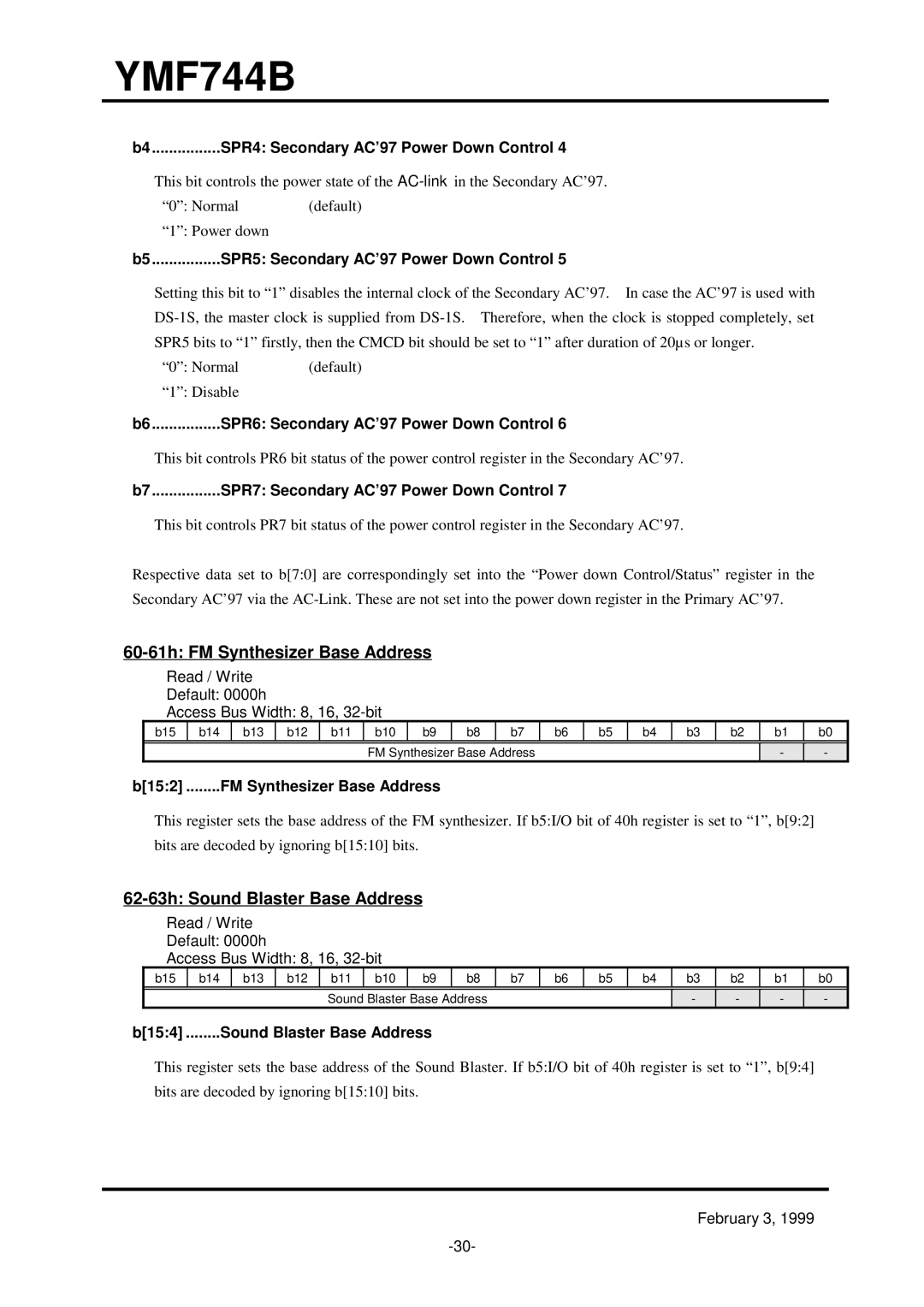YMF744B (DS-1S) specifications
The Yamaha YMF744B, also known as the DS-1S, is a popular audio chip that emerged in the late 1990s, particularly known for its use in sound cards for PCs. This sound processor exemplifies Yamaha's commitment to delivering high-quality audio through innovative technology and user-friendly features.One of the standout features of the YMF744B is its ability to support advanced sound synthesis methods, including wave table synthesis and sample playback. These technologies provide users with a rich audio experience, enabling high-fidelity sounds reminiscent of live instruments. The chip is also notable for its ability to emulate MIDI instruments, allowing musicians to create synthesized music that captures the nuances of traditional sounds.
The YMF744B integrates a 16-bit DAC (Digital-to-Analog Converter), which facilitates high-quality audio playback with a sampling rate of up to 48 kHz. This capability ensures that sound reproduction remains clear and devoid of distortion, appealing to both casual users and audio professionals alike. Additionally, the chip supports multiple audio channels, making it ideal for gaming and multimedia applications where spatial audio is crucial.
Another significant feature of the YMF744B is its support for various audio formats, including PCM (Pulse Code Modulation), ADPCM (Adaptive Differential Pulse Code Modulation), and even MIDI. The versatility in format support allows users to interact with a broad spectrum of audio applications, from game design to music production.
The chip also comes with integrated Sound Blaster Pro compatibility, which significantly enhances its usability with a vast array of software and games designed during the 1990s and early 2000s. This compatibility is crucial for retro gaming enthusiasts who seek an authentic audio experience with classics from the past.
Moreover, the YMF744B champions power efficiency, making it an attractive choice for mobile computing platforms. Its low power consumption means that it can be effectively used in laptops without significantly draining battery life, allowing users to enjoy high-quality sound on the go.
In summary, the Yamaha YMF744B (DS-1S) stands out due to its advanced audio synthesis capabilities, high-quality playback features, and compatibility with multiple formats. These attributes make it a favored choice in the audio processing domain, continuing to impact computer audio technology long after its initial release.

